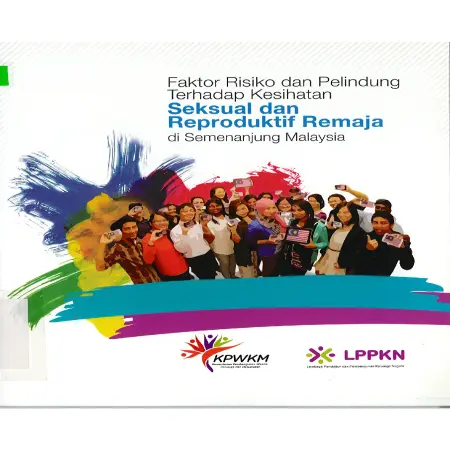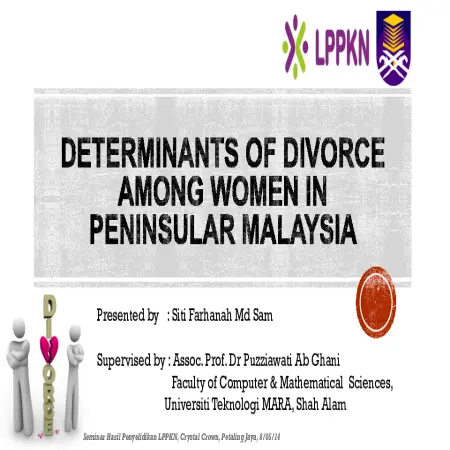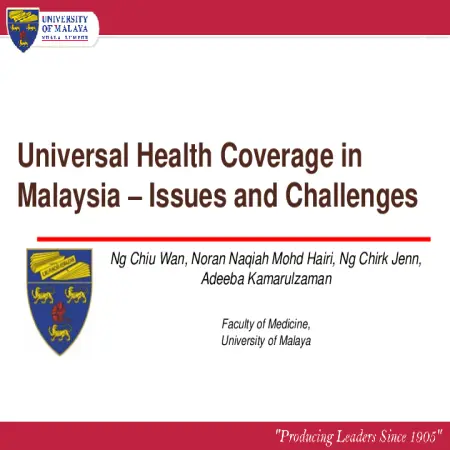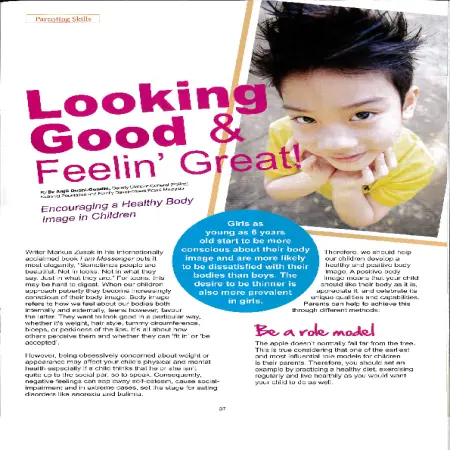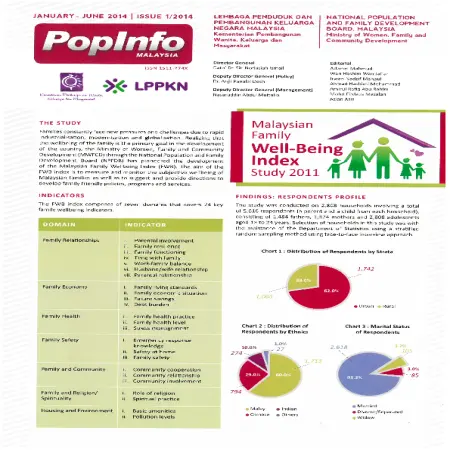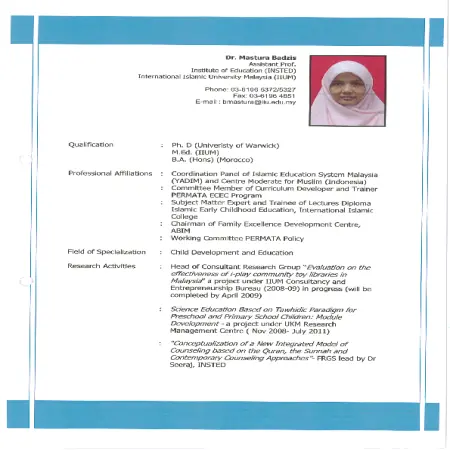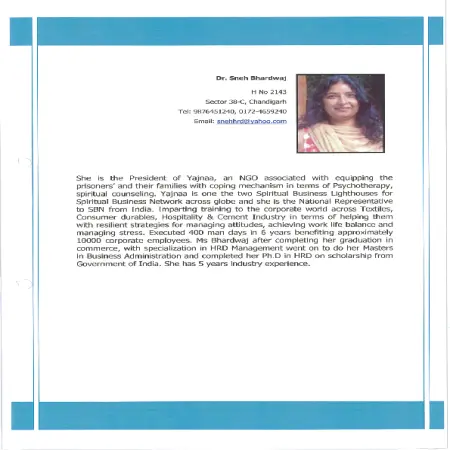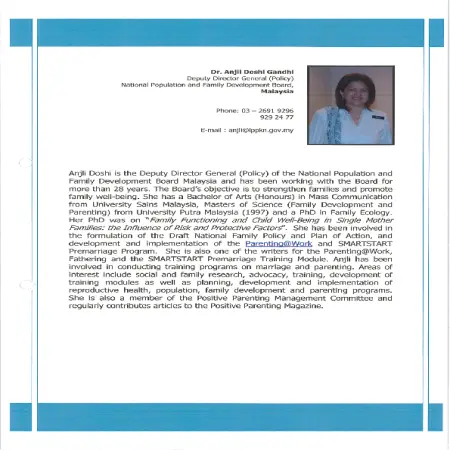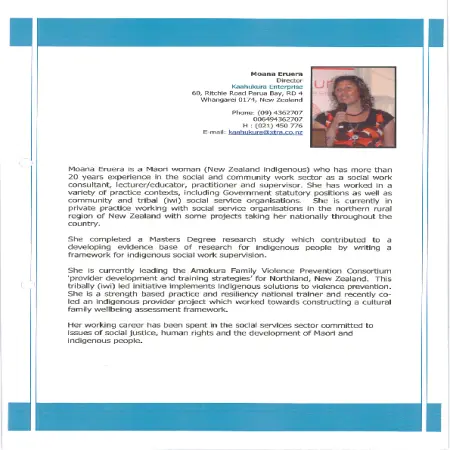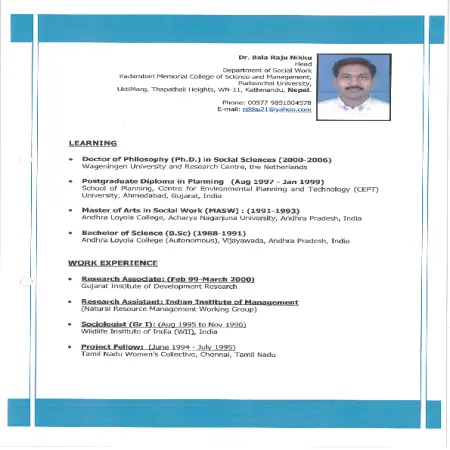Browse by Subject
Results for Search : "302 Social interaction"
|
|
Faktor risiko dan pelindung terhadap kesihatan seksual dan reproduktif remaja di Semenanjung Malaysia
Item Type: Research Report
Editor:
Year: 00/00/2015
Abstract: In Malaysia, statistics from the National Registration Department (NRD) show that a total of 214,033 illegitimate children were born from 2004 to 2009. While statistics from the Royal Malaysia Police (RMP) show that 596 cases of baby abandonment were reported from 2005 to 2013. For the total number of rape crimes in among teenagers under the age of 18, PDRM statistics show an increase from 1,710 cases in 2006 to 2,658 cases in 2013. The increase in such cases shows that today's teenagers face the problem of moral decay and fragility of identity which is a concern of Malaysian society. Accordingly, knowledge of sexual and reproductive health can help adolescents avoid negative symptoms such as cases of extramarital pregnancies and social symptoms related to sexuality. The objective of this study was to (i). to study the prevalence of unhealthy sexual behavior among adolescents aged 13-24 years in peninsular Malaysia; (ii). identify risk factors related to adolescent sexual and reproductive health (ASRH); and (iii). identify protective factors related to ASRH. This study was implemented using two (2) main approaches, namely quantitative and qualitative methods. The design of the quantitative study was successfully conducted on 5,088 adolescents aged 13 to 24 years. The qualitative study involved a total of eight (8) Focus Group Discussions (FGD) conducted in eight (8) selected detention centers and shelter hostels located in several states in Peninsular Malaysia.
|
|
|
|
|
|
Determinants of divorce among women in Peninsular Malaysia
Item Type: Conference or Workshop Item
Editor:
Year: 00/00/2014
Abstract: Many studies concerning divorce had been conducted especially in the West to investigate the pattern of divorce as well factors that that are related to divorce. However, there is not much research work on divorce in Malaysia. Therefore, the objective of this study is to explore the divorce trend at the macro level based on the data provided by the Department of Islamic Development Board and National Registration Department of Malaysia. Based on the trend analysis, it demonstrates that the divorce rate in Malaysia has been rising during a period of 17 years from 1995 to 2010. In addition, the trend of divorce between Muslim and non-Muslim couples display a divergent pattern especially during the economic downturn. At the micro level, the Fourth Malaysian Population and Family Survey (MPFS IV) data obtained from the National Population and Family Development Board was utilized to identify the determinants of divorce among women in Peninsular Malaysia. The results based on Cox-Regression analysis show that age, age at marriage, the number of marriages and the existence of children are the significant factors that are related to divorce. Besides, irreconcilable differences, imprudent husbands and the meddling in-laws family are the reasons why couples end their marriages, as found from the MPFS IV data.
|
|
|
|
|
|
Universal health coverage in Malaysia: issues and challenges
Item Type: Conference or Workshop Item
Editor:
Year: 00/00/2014
Abstract: Socioeconomic development in Malaysia, over the past few decades, has led to the improvement and expansion of the public healthcare system. This system has provided universal access to a low-priced package of comprehensive health care leading Malaysia to claim to have achieved universal health coverage (UHC). However, the Malaysian health landscape is changing rapidly. Provision of private care has grown especially in large urban towns, mainly in response to public demand. Thus far, private care has been predominantly bought and utilised by the rich but because of differentials in quality of care between the public and private sector, unabated expansion of the private health sector has the potential to adversely affect universal access to care. This effect may be accentuated in the coming years by demographic changes in the country specifically by the ageing of the population. This paper is intended to highlight challenges to UHC in Malaysia in the face of the changing health landscape in the country and to offer some suggestions as to how these challenges can be met.
|
|
|
|
|
|
Malaysian family well-being index study 2011
Item Type: Newsletter
Editor:
Year: 00/00/2014
Abstract: Realizing that the wellbeing of the family is the primary goal in the development of the country, the Ministry of Women, Family and Community Development through the National Population and Family Development Board (NPFDB) has pioneered the development of the Malaysian Family Wellbeing Index (FWB). The aim of the FWB index is to measure and monitor the subjective wellbeing of Malaysian families as well as to suggest and provide directions to develop family friendly policies, programs and services. The study was conducted on 2,808 households involving of 5,616 respondents. Through this study, the Family Wellbeing Index (FWB) was recorded at 7.55 out of a maximum score of 10 indicating that Malaysian families have a relatively high level of wellbeing and are able to manage the challenges of development. Of the seven domains identified, the Family and Religion / Spirituality domain recorded the highest score of 8.25.
|
|
|
|
|
|
Families resilience and children and families of low income: maximizing opportunities through PERMATA ECEC Program
Item Type: Conference or Workshop Item
Editor:
Year: 00/00/2009
Abstract: PERMATA Early Childhood Education and Care (ECEC) Program in Malaysia was launched on the basis of evidence from research and practice which illustrates that early intervention through high quality program enhances children's social, emotional, spiritual, physical, and cognitive development. PERMATA is a child-focused, community integrated program with the overall goal of increasing school readiness in young children in low-income families, particularly in deprived areas. Despite its various learning outcomes, ECEC main underpinning goal is to produce generations of youth who are able to manage and regulate emotion, possess high EQ skill, and resillient in facing different challenges in life. Its long-term effect can be better understood as children develop into responsible citizens who will take a much more positive role in the society and are free of social ills that now seem to beset the country. This paper presents some strategies of best practices that have been applied in this program to foster and instill resilience in children mainly, increasing caring relationship, developing social competence, encouraging, self-help skills, create partnerships with family and community, and awareness of the existence and supremacy of God.
|
|
|
|
|
|
Resilient families coping with sudden demise husband: an exploratory and empirical study of 50 nuclear urban middle class families in North India
Item Type: Conference or Workshop Item
Editor:
Year: 00/00/2009
Abstract: The paper offers research based Resilient Indian Family Template' culled from the coping practices adopted by 50 Nuclear Urban Middle Class Families in North India in the eventuality of sudden loss of husband. Convenient random sampling technique of data collection was employed for choosing the 50 families in question. Further interview and narrative methodology was used to elicit information from the families. Sudden loss of husband was accompanied by emotional and health problems for the surviving spouse, acute feeling of loneliness, decreased standard of living for the family, increased moral support from close relatives, children especially grown ups showing more restraint and responsibility in their habits and one member (in most cases it was wife) taking up income generating activity. Coping practices adopted by these families helped them rebound from crisis.
|
|
|
|
|
|
Family functioning and child well-being amongst urban Malay single mother families: resilence despite challenges
Item Type: Conference or Workshop Item
Editor:
Year: 00/00/2009
Abstract: This study was designed to determine the contribution of risk and protective factors in predicting urban Malay single mother's family functioning and child well being. In addition, this study examine the moderating role of protective factors (risk x protective factor interaction) on the relationship between risk factors and family functioning and child well-being. Result highlight the role of protective factors in promoting better family functioning and child well-being and the extent to which protective factor buffer risk factors in the design of intervention aimed at strengthening family functioning and enhancing child well-being in urban Malay single mother families.
|
|
|
|
|
|
New Zealand indigenous people and resilience
Item Type: Conference or Workshop Item
Editor:
Year: 00/00/2009
Abstract: Indigenous peoples throughout the world have used strengths and resiliency to preserve the ongoing effects of colonizations and as tools for sovereignty. The 'Tangata Whenua' of New Zealand, along side other indigenous and minority groups throughout the world, continue to progress the development of their own cultural frameworks and models of practice. More recently in New Zealand, particularly within the health and social services sectors, 'tangata whenua' have begun to examine resiliency research and practices which contribute to the body of knowledge in the area of 'whanau ora', and the cultural capacities and capabilities which assist families to build resiliency and protective factors and processes. This presentation examines what has been learned from the theory and practice experiences of a 'Tangata Whenua' social work practitioner and trainer.
|
|
|
|
|
|
Coping mechanisms of families in transition: insights from Kathmandu Valley, Nepal
Item Type: Conference or Workshop Item
Editor:
Year: 00/00/2009
Abstract: The main purpose is to document and analyze the families that are migrated to Kathmandu City during the decade long in surgency in Nepal and their coping strategies. With in the family the children were the most effected. The analysis indicates that families have used different coping mechanisms. One of that is surprisingly offering children for adoptions outside the country. Children under 18 comprise almost 50 percent of Nepal's populations. As research evidence shows more than 300,000 orphans are in Nepal. There are various reasons behind the increasing trend of orphan and abandoned children. It includes armed conflict, domestic violence, natural disasters and displacement. These reasons directly or indirectly have an influence on the structure, size and coping mechanism of families in Nepal. The other mechanisms are earning daily wages, leaving old members of the family back home, male and female out migration. There are important policy lessons can also be derived and as a result government and non governmental programs can be designed that will enhance the resilience of families in transition. The paper is structured in five sections. After a brief introduction, section one presents the Statement of Problem and Objectives of the Study. The second section presents the findings from a brief literature review. Third section presents the analysis and findings for the primary research. Fourth section is about structures and process that are required to enhance the coping mechanism of the families in question. The paper is concluded in the fifth section.
|
|
|
|





